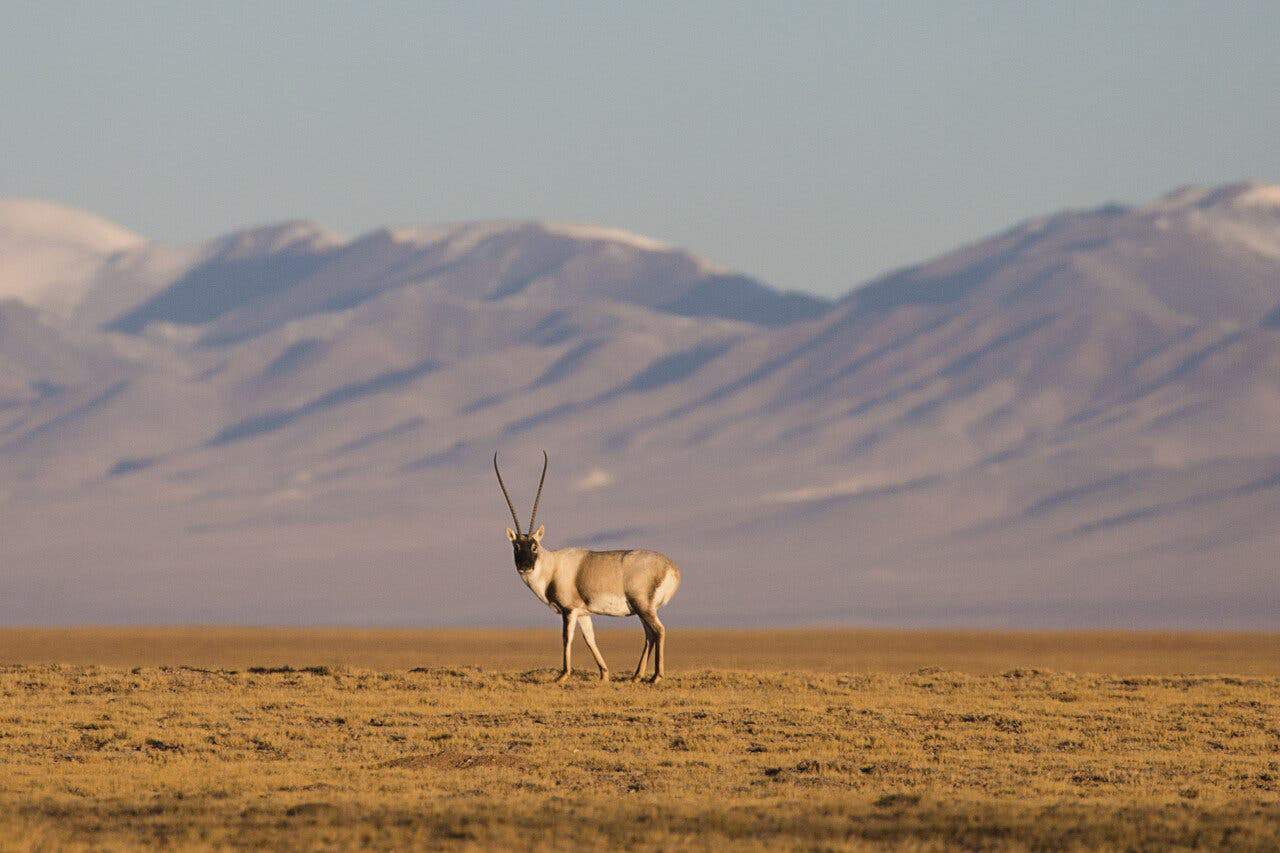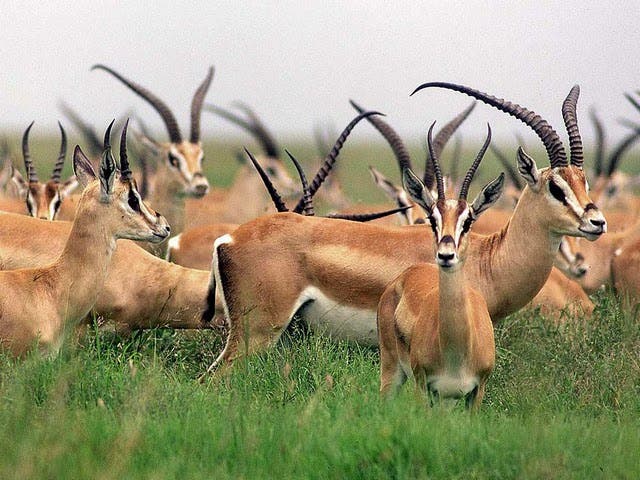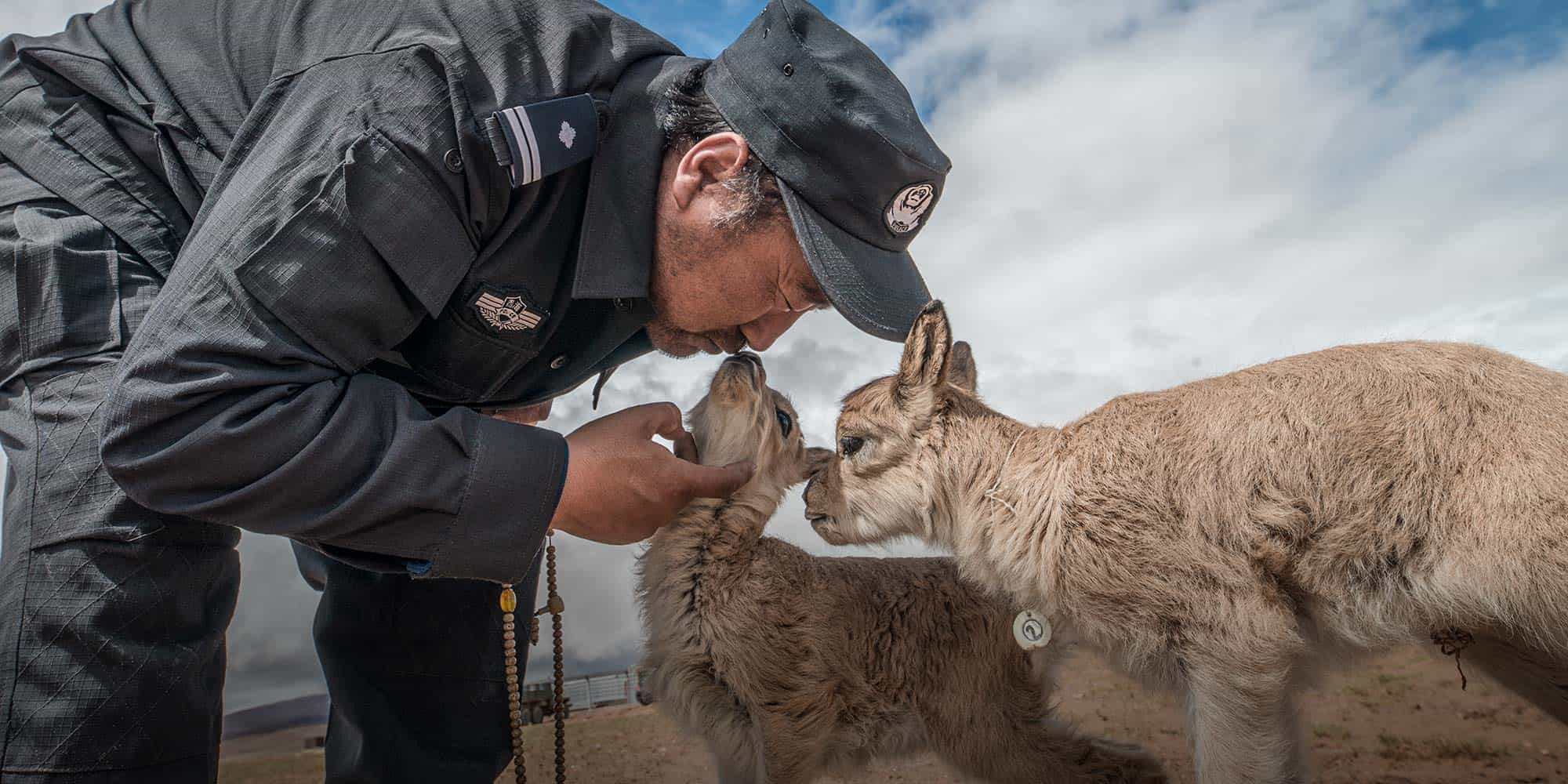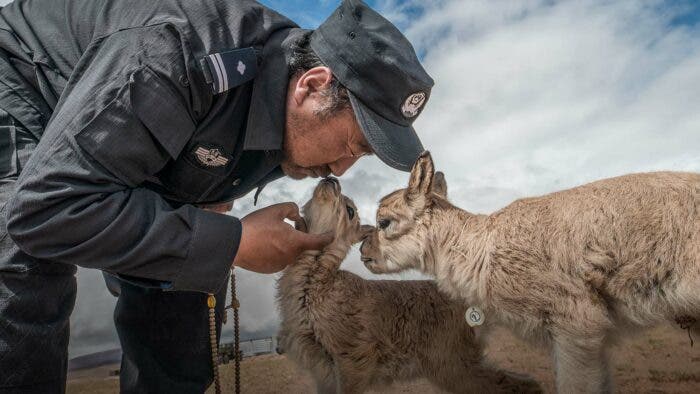Chinese brand, ZTE is a popular company that focuses on IT and communication tech solutions. The company recently issued a press release about its deal with the Sanjiangyuan National Park, China Mobile and China Tower. According to ZTE, it is joining forces with the park as well as the two carriers to offer 5G coverage at the Zhuonai Lake Protection Station in Kekexili. According to UNESCO, Kekexili or Hoh Xil has the largest and highest plateau in the world. UNESCO also says that this region also has the highest-altitude World Natural Heritage site and is known for its huge wildlife resources. ZTE claims that this is the start of a new era in animal protection and ecological monitoring. This is due to the fact that 5G network now links Kekexili to the world.

ZTE also claims that the new 5G network is a sort of hidden shield that keeps Kekexili’s precious ecosystem. The company gave an instance where the 5G network will be of great help. It said
“The “Tibetan antelope maternity ward” is known as Zhuonai Lake, which is located in the centre of Kekexili. Tens of thousands of female Tibetan antelopes travel great distances from May to July each year to give birth close to Zhuonai Lake. In order to protect the Tibetan antelopes, Zhuonai Lake acts as a crucial tracking and relay point. The safety staff in the station needs to patrol the region for a longer period of time”.
In the past, satellite phones were used for patrols which lead to a lot of downtime for the crew. Due to the absence of internet access, keeping the crew safe was really hard. This also strongly affects the work of the patrol team. However, with the launch of the new 5G network, they can now parol the park freely while getting real time info from the control station.
First video call made in the area
ZTE and China Mobile report that with the setup of the 5G network, the first video call in the area has been made. The brands said that the project was successfully closed with amazing standards, efficiency, and quality. This comes after more than twenty days of effort, enabling a smooth end of the first video chat within this wide deserted area.

Zhuonai Lake Protection Station 5G network setup
The set-up of the 5G base station at Zhuonai Lake Protection Station started in early May. The hostile terrain, which is marked by permafrost, strong winds, extreme cold, and high altitude, presents major issues for technical solutions and equipment performance. A number of hurdles were solved by close cooperation between China Mobile and ZTE. This includes workers dealing with hypoxia, altitude sickness, and wildlife delays. The
Two frequency bands are used by the built 5G base station at Zhuonai Lake to balance capacity and coverage. With just one base station, the 700MHz band and 5G ultra – long – range coverage tech can cover the entire Zhonai Lake region within a radius of more than 10 km. The 2.6GHz band is also capable of serving 32 HD video uploads. This meets the high bandwidth needs for HD video backhaul around the protection station.
Wide bandwidth and long – distance microwave relays are used in the base station transmission. This enables a single hop spread of more than 57 km. All of the site’s gear is also solar – powered, wind- and temperature – resistant. The brand also claims that the gears have a design that can withstand winds of up to 11 metres per second.
Words from China Mobile and the park’s deputy director
According to Hu Bo, General Manager of China Mobile, the protection work in Kekexili poses a huge issue. He said
“Extending China’s 5G network coverage to uninhabited areas to support environmental protection and enhance the integrated management of protected areas has long been a goal for China Mobile. Currently, the maximum internet transmission speed around the protection station is 860Mbps. High-quality 5G networks bring numerous benefits. They enable real-time observation of Tibetan antelope births, ensuring crucial wildlife monitoring. Additionally, they prevent protection staff from being isolated in harsh environments, promoting their safety and well-being. Moreover, 5G technology opens up possibilities for future environmental protection, ecological monitoring, scientific expeditions, and changes in the management of protected areas”.
The Deputy Director of Sanjiangyuan National Park Administration, Sun Lijun adds
“The deployment of 5G is a crucial step towards achieving smart management of national parks. It will significantly enhance the efficiency of scientific management in national parks and establish a more comprehensive mechanism for protection and research in Kekexili”.
In the future, Sanjiangyuan National Park, China Mobile, China Tower, and ZTE will work even more closely jointly to protect world heritage sites by using communication tech. Together, they want to further efforts for environmental conservation and sustainable development by forming a local ecological society.

How does the 5G network help protect the ecosystem in Kekexili
The 5G network helps protect the ecosystem in Kekexili in the following ways:
1. Acts as an invisible shield: Reports from ZTE claims that the 5G network in this area is a shield that keeps the entire area safe. This simply means that the network offers a layer of safety to the area. This is very much needed for the life of the animals to be kept safe and it also keeps the plants safe too.
2. Keeps animals safe and checks the ecology: The launch of the 5G network in Kekexili is used to connect the region to the world with 5G. This not only helps to keep the region in proper check it also helps to keep the animals safe. This means that the network gives a means of monitoring the region and the animals that live in it. This is needed to conserve the area.
3. Links wild regions: The 5G network connects wild regions where people do not stay for relevant conservation efforts. This means that the network gives a means of data and info transfer between different parts of the area. This is essential for keeping the region safe and for checking the region.
Final Words
ZTE, China Mobile and the park in Hoh Xil, China have teamed up to ensure that the deserted areas of the park now have a 5G network. This is very good for the animals can be safer and the region can be in good check. With the 5G network, the safety officers in the park can send info from the deep parts of the park to get help. At the moment, the case study for this network is coming from ZTE, China Mobile and the park authorities. Because this is a reserved area, you will not have any private case studies outside this official report.





